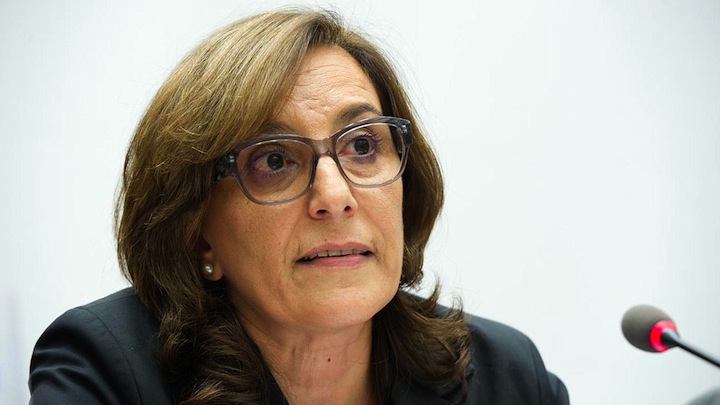The trial and conviction of former president Mohamed Nasheed was “vastly unfair, arbitrary, and disproportionate,” a senior official at the UN human rights office said yesterday, urging action to resolve a deepening political crisis.
The government, however, remains defiant in the face of growing international and domestic pressure for the release of the opposition leader.
At a UN press briefing in Geneva on Friday, Mona Rishmawi, head of the rule of law, equality and non-discrimination branch, said Nasheed’s 19-day trial was politically motivated and his conviction was reached by judges wielding “incredible discretionary powers.”
“We kind of started to get signals that even the government recognises that something went wrong with the process of the trial,” she was quoted as saying by Reuters.
“We would like to see this translate into concrete political action and see something happening in this case…What is very clear is that the president still has clemency powers.”
Rishmawi visited the Maldives from April 20 to 23 as head of a delegation from the Office of the High Commissioner for Human Rights to “examine the broader issues” related to Nasheed’s case.
However, foreign minister Dunya Maumoon told the state broadcaster yesterday that the government will not comply with demands from foreign governments to “meddle” with the judiciary and release a convict.
The European parliament adopted a resolution last week calling on the government to release Nasheed and urged member states to issue warnings on the Maldives’ human rights record on their travel advice websites.
Nasheed’s international lawyers are also seeking a judgment from the UN working group on arbitrary detention declaring his incarceration illegal.
Dunya reportedly said the Maldives would become “enslaved” and lose its independence if the government accepted the demands.
The foreign governments do not wish well for the Maldives, Dunya said, and called on the public to protect the country’s institutions, independence, and sovereignty.
After meetings with officials from the government and the judiciary as well as members of civil society organisations, the UN delegation found that the prosecutor general and judges have “excessive discretionary powers” in the absence of criminal justice procedures and evidence laws, according to a press briefing note from the UN rights office.
Rishmawi noted that lesser charges against Nasheed over the January 2012 military detention of criminal court chief judge Abdulla Mohamed had been withdrawn shortly before his arrest in February.
Nasheed “learnt about the new charge under the Terrorism Act only upon his arrest.”
He was found guilty on March 13 and sentenced to 13 years in prison.
The criminal court denied Nasheed “the possibility to prepare and present adequate defence, including calling defence witnesses, and examining the evidence against him.”
“What we saw is that the rules have been really changed to lead to a certain result,” she said.
The discretionary powers do not work for the benefit of a fair trial, which she said was the main issue at stake and suggested that “international pressure could help fix flaws” in the judiciary.
The briefing note added that the Maldivian judiciary is “is perceived as politicised, inadequate and subject to external influence” and referred to the convictions of former defence ministers Mohamed Nazim and Tholhath Ibrahim, who also “received disproportionate sentences in a flawed trials.”
The UN human rights office urged the government to ensure an environment conducive for political dialogue, allow the exercise of the rights of free expression and assembly, and ensure Nasheed’s safety in custody.
Rishmawi met the former president in a “temporary location” before he was transferred to the high-security Maafushi jail, and described Nasheed as thoughtful and humorous.
“But I wouldn’t say he was relaxed. He knew he was facing 13 years in prison and he knew that his situation is really really difficult and he worried a lot about his safety,” she said.
